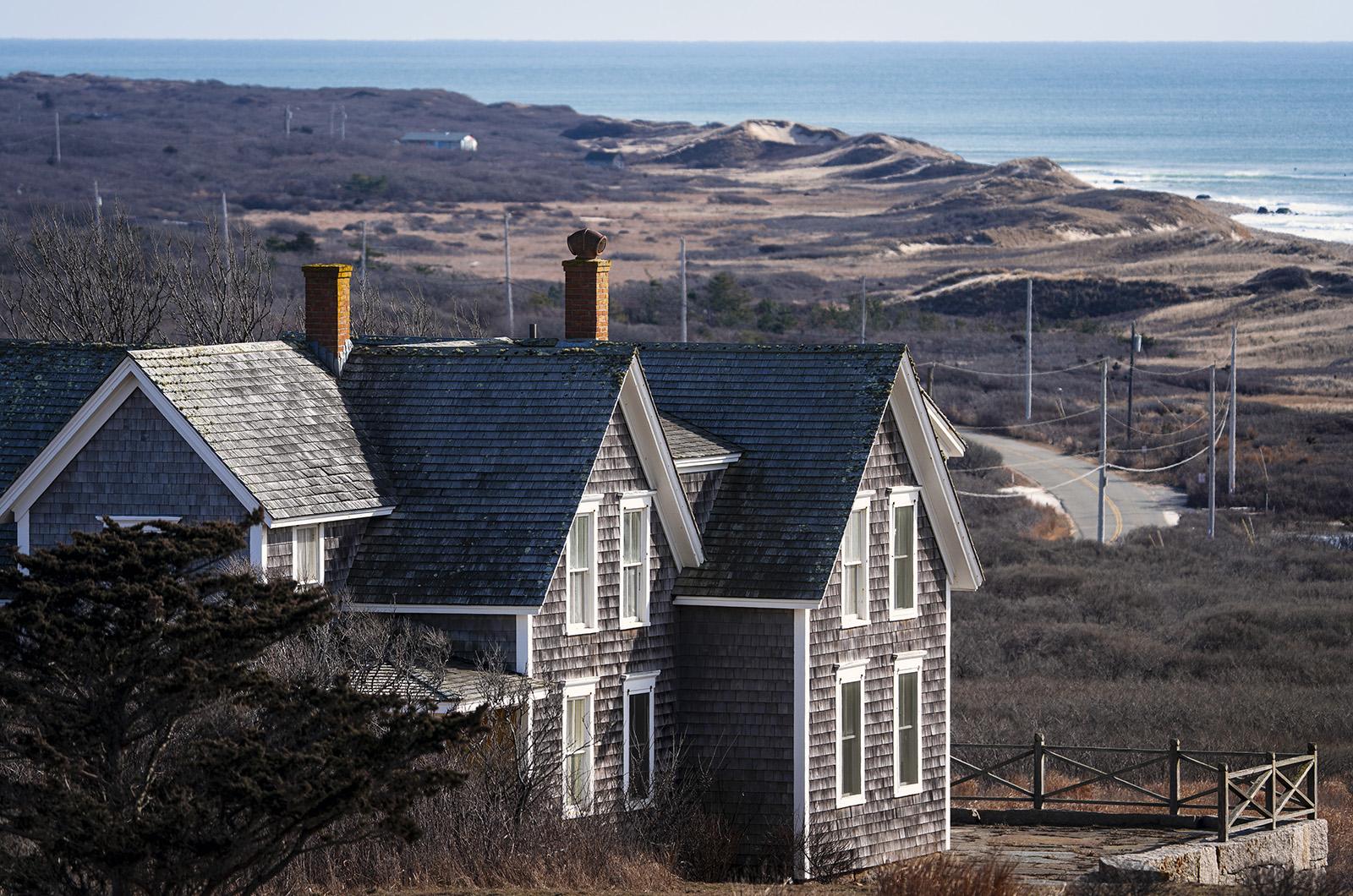Even in the depths of winter, Aquinnah is looking toward greener pastures.
In a presentation to the Aquinnah select board last week, energy committee chair Bill Lake shared several updates to the state environmental codes, including more stringent heating and ventilation standards, as the town looks to decrease its reliance on fossil fuels.
In 2019, the town of Aquinnah voted to adopt the stretch energy code, a stricter set of environmental building codes, which would allow the town to apply for Green Community state grant funding.
Under new changes to the stretch code, all new construction must include at least one electric vehicle outlet and follow higher heat efficiency standards beginning July 2024. New buildings using fossil-fuel-based heating systems must also be more efficient than their electric counterparts, an incentive to go electric, Mr. Lake said.
The town could also now opt into a specialized code on top of the stretch requirements. The specialized code would require all fossil-fuel-based heating systems to be wired for future electric use and have solar power capability.
“It’s the stretch code with an earlier deadline,” Mr. Lake said.
Generators and gas grills would be exempt from the requirement.
Aquinnah has not yet made a decision on opting into the specialized code. Mr. Lake recommended that the town opt in in an upcoming town meeting this spring.
“These requirements only apply to new construction,” he added. “Retrofitting will be a major issue...that’s a longer term, more expensive proposition.”
Aquinnah is also applying to participate in an all-electric pilot program through the Department of Energy Resources, which would give 10 communities in Massachusetts the legal power to eliminate fossil fuels in new construction entirely.
The department recently recommended that towns adopt the specialized code in order to be eligible for the program.
Although confident the town would vote in its favor, Mr. Lake asked that the select board to exclude the specialized code from its application should the vote not go through.
“That’s a very difficult decision and I think it would be better if they weren’t linked,” Mr. Lake said.
The board agreed and voted to exclude the specialized code from the application.
Town administrator Jeff Madison expressed support for the updates but worried that some requirements would prove daunting for homeowners.
“The technologies and regulations, frankly, are in a constant state of flux,” he said, adding that his own experience attempting to install solar for his home has been discouraging. “It’s really frustrating. I feel like I bought a ticket on a steamer and the steamer left three hours ago and now I have to swim to catch up.”
Cape Light Compact and Vineyard Power will be hosting several educational sessions with the community to demystify the solar installation process for homeowners.
In other business, lighthouse keeper Chris Manning is beginning moderate repairs on the Gay Head Light with assistant lighthouse keeper Isaac Taylor. Mr. Manning plans to begin reconstructing the split rail fence further away from the cliffside and painting the inside of the lighthouse later this spring.
To help fund the current and future projects, including a more complete renovation of the lighthouse down the line, Mr. Manning said he has been in talks with several windfarms, including South Fork and Revolution Wind, to make one-time and annual contributions.






Comments (1)
Comments
Comment policy »